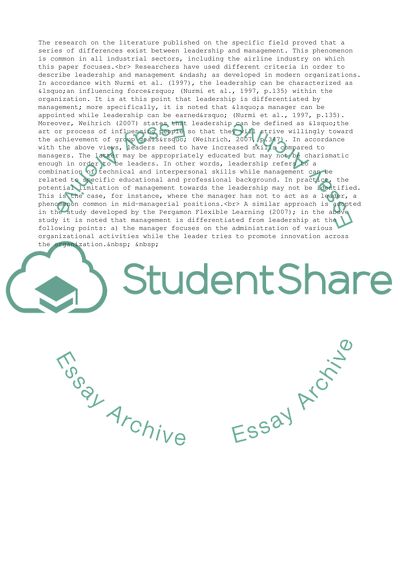Cite this document
(A Series of Differences between Leadership and Management Term Paper, n.d.)
A Series of Differences between Leadership and Management Term Paper. Retrieved from https://studentshare.org/management/1573150-the-terms-leadership-and-management-are-often-used-interchangeably-where-some-writers-argued-to-clear-distinction-between-management-and-leadership-whether-is-it-simply-a-function-of-management
A Series of Differences between Leadership and Management Term Paper. Retrieved from https://studentshare.org/management/1573150-the-terms-leadership-and-management-are-often-used-interchangeably-where-some-writers-argued-to-clear-distinction-between-management-and-leadership-whether-is-it-simply-a-function-of-management
(A Series of Differences Between Leadership and Management Term Paper)
A Series of Differences Between Leadership and Management Term Paper. https://studentshare.org/management/1573150-the-terms-leadership-and-management-are-often-used-interchangeably-where-some-writers-argued-to-clear-distinction-between-management-and-leadership-whether-is-it-simply-a-function-of-management.
A Series of Differences Between Leadership and Management Term Paper. https://studentshare.org/management/1573150-the-terms-leadership-and-management-are-often-used-interchangeably-where-some-writers-argued-to-clear-distinction-between-management-and-leadership-whether-is-it-simply-a-function-of-management.
“A Series of Differences Between Leadership and Management Term Paper”, n.d. https://studentshare.org/management/1573150-the-terms-leadership-and-management-are-often-used-interchangeably-where-some-writers-argued-to-clear-distinction-between-management-and-leadership-whether-is-it-simply-a-function-of-management.


